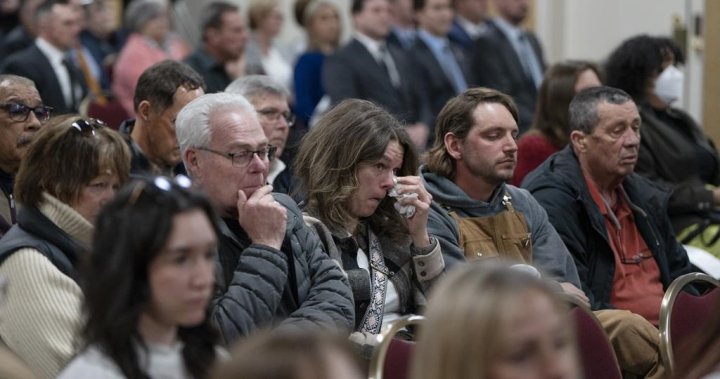A committee member tasked with overseeing responses from governments and the Royal Canadian Mounted Police (RCMP) to the 2020 Nova Scotia mass shooting inquiry has expressed significant concerns voiced by survivors of gender-based violence. Following this tragedy, which left 22 people dead during a rampage initiated by a gunman with a history of domestic violence, survivors and advocates have expressed disappointment in the progress made toward addressing gender-based violence (GBV). Kristina Fifield, a social worker and trauma therapist representing the GBV sector on the committee, reported feelings of anger and frustration in the community when the committee’s inaugural annual report was released. Survivors are raising questions about the slow pace of change, yearning for a more robust response to the urgent needs surrounding GBV, as they feel their voices are not being adequately heard in the ongoing discourse.
Despite these sentiments, committee chairwoman Myra Freeman insisted that both the Nova Scotia and federal governments have made commendable strides in implementing the inquiry’s 130 recommendations. Among these developments are programs and support services aimed at preventing gender-based violence, as well as efforts to establish a national plan dedicated to combatting this societal issue. Freeman’s statement acknowledged that while some initial steps have been made, significant further action is still necessary. In response to the frustrations expressed by survivors through Fifield, Freeman reaffirmed the necessity for meaningful progress in addressing gender-based and intimate partner violence, noting that the committee would remain vigilant, continuing to monitor and report on the situation.
Fifield highlighted her concerns regarding the lack of decisive action to tackle the root causes of gender-based violence, particularly as reported rates continue to rise in Nova Scotia. She noted a concerning increase in incidents of coercive control and physical violence, amplifying an already challenging situation. Statistics Canada reported a sharp rise in family and intimate partner violence, with police-reported cases experiencing increased rates between 2018 and 2023. In 2023 alone, over 123,000 incidents of intimate partner violence were documented. Fifield remarked that the normalization of violence allows many to overlook its prevalence and the significant impact it has on individuals’ lives, emphasizing the urgent need for comprehensive action.
Adding to the alarming context, recent instances of men killing their female partners before taking their own lives have been reported in Nova Scotia, serving as grave reminders of the ongoing GBV crisis. The Mass Casualty Commission’s findings categorized gender-based violence as an epidemic, highlighting its systemic nature and under-reporting issues within Canada. As part of a broader strategy to combat this crisis, Fifield advocated for increased and stable funding for organizations that support survivors. She stressed the importance of providing “core funding” to ensure consistent support for these groups rather than relying on fluctuating project-based funding, which hampers their ability to operate effectively.
The committee’s report underscores recommendations made by the Mass Casualty Commission for “epidemic-level” funding to prevent gender-based violence, recognizing that work has been initiated but remains significantly insufficient. Additionally, it calls for training within the justice, health, and police sectors to ensure survivors of gender-based violence are both believed and supported when they come forward for assistance. The report also highlights ongoing efforts to mitigate victim-blaming tendencies prevalent in society and create safe reporting environments for individuals suffering from GBV, areas where substantial progress is still required.
In conclusion, while the committee has acknowledged some advancements in addressing GBV since the mass shooting, the concerns voiced by survivors and advocates signal that these measures are far from adequate. Kristina Fifield’s representation of survivor experiences sheds light on the pressing need for systemic change and more substantial intervention strategies. Until these concerns are addressed meaningfully and with urgency, the cycle of domestic violence and trauma is likely to continue, underscoring the necessity for governments and institutions to not only listen but act decisively on these critical issues. The efforts moving forward must prioritize the voices of survivors and ensure that they receive the support and resources they need to overcome the challenges posed by gender-based violence.










